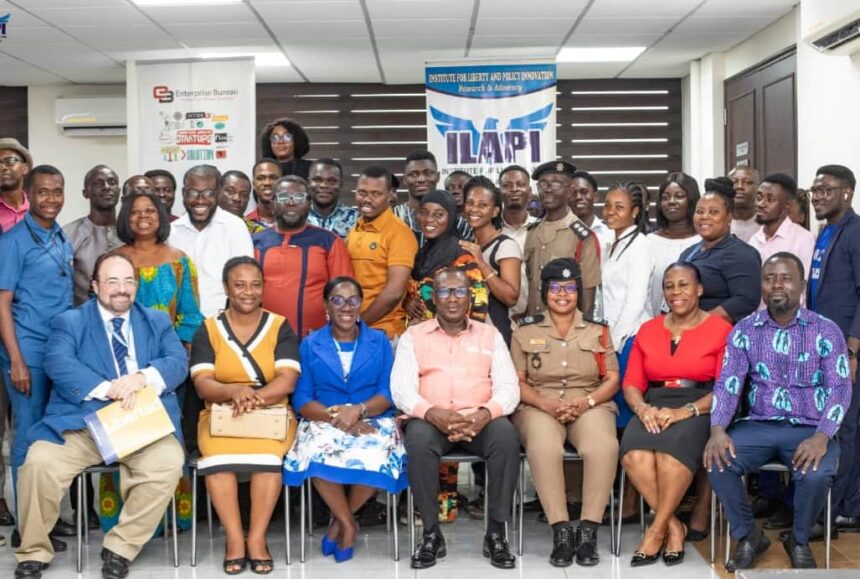Over 80 startup ventures received hands-on training in business formalization and regulatory compliance at a workshop held at the Assemblies of God Conference Hall in Accra. The event, jointly organized by the Institute for Liberty and Policy Innovation (ILAPI) and Enterprise Bureau, brought together officials from key government regulatory agencies and business leaders for a robust dialogue on regulatory bottlenecks and their impact on economic growth.
Participating agencies included:
– Office of the Registrar of Companies
– Ghana Revenue Authority
– Environmental Protection Agency
– Ghana Tourism Authority
– Ghana National Fire Service
– Accra Metropolitan Assembly
– Food and Drugs Authority
– Ghana Standards Authority
– Department of Factory Inspectorate
The workshop explored the link between regulatory overload and economic stagnation and highlighted the urgent need for reform to support Ghana’s entrepreneurial ecosystem.
Bismark Kwofie, Executive Director of ILAPI, emphasized the financial strain regulatory compliance places on small and medium-sized enterprises (SMEs).
“In Ghana, if you have about 100,000 cedis as capital, you should expect about 20 to 30% to go into business regulation alone,” Mr. Kwofie told the media at a recent training workshop focused on navigating Ghana’s regulatory environment. “It also means that about three to five people will lose their jobs or won’t be employed. The more you grow the business, the more the requirements.”

Joining the conversation was Juan Pina, General Secretary of the Spain-based Foundation for Economic Advancement. Drawing parallels between Ghana and Spain, Mr. Pina cautioned that excessive regulation is a shared barrier to innovation and entrepreneurship. ”…there is a lot of regulation. I don’t know if it can be considered overregulation. so many things have to be complied with by small business owners just to start a business, he observed.
Mr. Pina advocated for more flexible regulatory models such as Positive Silence and Responsible Declaration. These systems allow businesses to commence operations once requirements are truthfully met, without waiting for prolonged bureaucratic approval. Dishonest declarations would still attract penalties.
“Ghana would really progress in a faster way if most of those regulations were either discarded when possible or at least changed to a system of what we call Positive Silence- that means you ask the administration for a certain thing, and if they take longer than X amount of time, then it is granted and Responsible Declarations,” he explained.
The workshop concluded with a call for bold regulatory reforms to reduce compliance costs and unlock the full potential of Ghana’s MSMEs.






